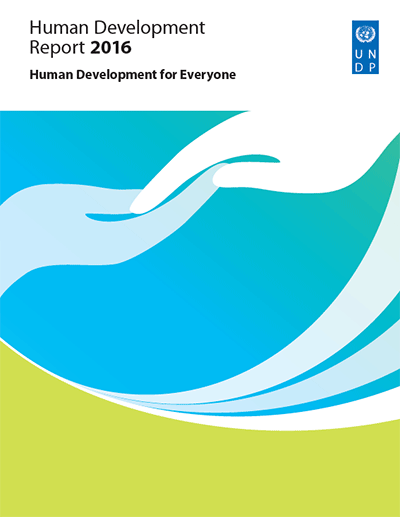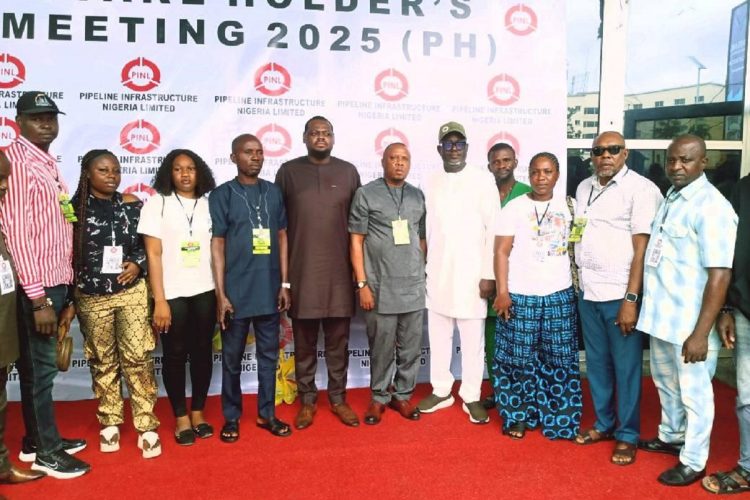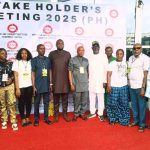Niger Delta Conflict Tracker (February – March 2017)
April 18, 2017
Life Expectancy in Nigeria now 53.1 years’ UNDP Report
April 19, 2017Nigeria has been ranked 152 amongst the 193 United Nations (UN) member states in the latest Human Development Index (HDI) for 2016 released by the United Nations Development Programme (UNDP).
Nigeria is followed closely by Cameroon in number 153 and Zimbabwe in 154 position.
The report places Nigeria below neighbouring Ghana which is placed 139, Gabon, 109, Zambia also in 139, Equitoria Guinea, 135.
The report however showed a positive outlook for the country as it revealed 13.1 % increase in human development in the last ten years under review (2005-15).
NDI indicates the number of people with access to education and other basic amenities. Human development is about enlarging freedoms so that all human beings can pursue choices that they value. HDI is a composite statistic of life expectancy, education, and per capita income indicators, which are used to rank countries into four tiers of human development
The global report was officially launched on 25th, March 2017 in Stocklom, while the Nigeria version was launched Tuesday.
According to the report, Norway tops the log as the number one country in the Hunan Development Index and it’s closely followed by Switzerland and Australia which came joint second, Germany on the fourth position and Denmark number five.
Speaking at the public presentation of the Report in Abuja yesterday, UNDP Resident Representative, Mr Edward Kallon, called for an urgent action by the government to sustain the gain.
“The report shows that between 2005 and 2015, Nigeria’s HDI increased from 0.466 to 0.527 – a 13.1 percent increase.
“This is encouraging, but given the humanitarian challenges already alluded to, and the economic recession witnessed in 2016, there is an urgent need to design policies and programmes to ensure that the upward trend in human development is not reversed.
“As the 2014 HDR aptly noted success is not automatic and gains are not necessarily permanent,†he said
He noted that the Economic Recovery and Growth Plan (ERGP) recently launched by the Federal Government outlined several medium-term policies and programmes that could keep Nigeria on a positive development trajectory.
He said that the ERGP focused on restoring growth, investing in people and building a globally competitive economy.
Kallon pledged the UNDP commitment to supporting both the Federal and State Governments in implementing programmes addressing the simultaneous eradication of poverty and signi ficant reduction of inequalities and exclusion in Nigeria.
He described UNDP as the UN’s lead agency with a mandate to eradicate poverty, and promote sustainable human development everywhere in Nigeria.
According to him UNDP has produced several National HDRs focusing on various issues defining development in Africa’s largest economy.
He said that the reports would continue to shape policy interventions and public debate around many development issues affecting millions of people in the country.
“The economic growth is necessary but not sufficient condition for human development; it is possible to achieve high levels of human development even with modest levels of growth.
“What matters is the source and spread of growth; and how growth is managed and distributed for the benefit of everyone,†he said.
He said that addressing the twin problems of economic recession and humanitarian crisis facing the country called for tough policy choices.
“We should utilise the opportunity provided by the national launch of this report to promote policy dialogue, at both national and sub-national levels.
“To enrich programmes aimed at implementing the ERGP and Growth Plan, the SDGs and AU’s Agenda 2063 to ensure that human development is realised for everyone and that no one is left behind,†he said.
Minister of State, Budget and National Planning, Mrs Zainab Ahmed in her remarks said the launch of the report was timely.
She however warned that the current humanitarian crisis in the North East is capable of reversing the gain if not properly addressed.
She said, “The downturns in 2016 occasioned by the weak growth of investment, trade and productivity as well as the humanitarian crises are capable of infusing a reversal trend if not curtailed early.
“​It is common knowledge today that violent extremism is the greatest threat to human improvement, especially the achievement of inclusive growth as put forward by the UNDP’s principle of Universalism. Following the Arab Spring which was initially thought of as a Mediterranean issue, violent extremism has engulfed the Lake Chad region, taking its toll on lives and property in North East Nigeria. Over 14 million people are affected with 1.8 million internally displaced persons to carter for in the three most affected States.â€
She stressed that human development could also be elusive when there is insecurity and deprivation.
“Human Development cannot be for everyone in a situation where 14 million people are insecure and deprived,†he said.
Mrs. Ahmed however commended President Muhammadu Buhari’ Administration for reducing the level of violence in the country.
He noted, “the level of violence has been significantly scaled down but over 4.4 million people in the region need food, clothing and shelter. The Government of Nigeria has mobilised available resources to ameliorate the situation.
Speaking on the report, she said it provided an independent and data-based analysis of why certain groups tend to be more disadvantaged and highlights the persistent barriers to achieving sustainable human development for all.
She said it also came on the heels of the recently launched NERGP which she said would define the country’s economic trajectory for the next four years, by ensuring sustained, inclusive and diversified growth.
“The Report comes as Nigeria works to actively implement programs aimed at meeting the Sustainable Development Goals, both at the Federal and State levels,†she said.
The minister said Government was working proactively to address the current economic challenges facing the Nation, and to implement policies and programmes that promote human development.
According to her the programmes would ensure that `no one is left behind’.
“We will also strive to ensure that the disadvantaged communities receive the extra support they need. This includes those living in conflict affected areas, women and girls, and rural communities.
“Government is striving to ensure that human development progress is more resilient to shocks, such as epidemics, economic challenges, conflicts.
“This is being done through the development and implementation of sound policies and through social investment programmes,†she said
Culled from: The Nation









